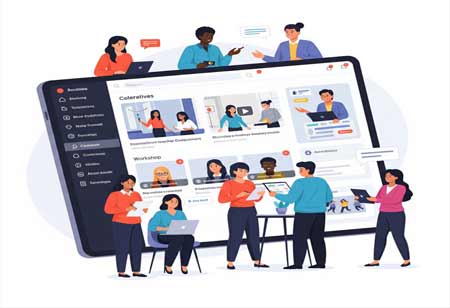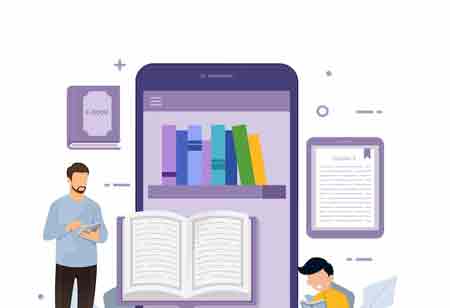THANK YOU FOR SUBSCRIBING
Be first to read the latest tech news, Industry Leader's Insights, and CIO interviews of medium and large enterprises exclusively from Education Technology Insights
The Rise of Learning Platforms in Reimagining Teacher CPD
Learning platforms enhance teacher development through flexible, personalized, and accessible experiences, fostering collaboration and supporting ongoing professional growth in diverse and data-driven ways.

By
Education Technology Insights | Friday, August 29, 2025
Stay ahead of the industry with exclusive feature stories on the top companies, expert insights and the latest news delivered straight to your inbox. Subscribe today.
Fremont, CA: Today, Continuous Professional Development (CPD) for teachers is a fundamental necessity. To keep pace with new pedagogies, technological advancements, and the diverse needs of students, educators must engage in ongoing learning. Learning platforms have emerged as a powerful catalyst, redefining traditional, often static, professional development into personalized and accessible experiences.
How Learning Platforms Revamp Teacher Development
One of their most compelling features is the unparalleled flexibility and accessibility they afford. Teachers can engage with courses and resources anytime, anywhere—be it from home, school, or while traveling—allowing them to integrate professional learning seamlessly into their schedules. The self-paced nature of these platforms empowers educators to revisit materials and reinforce their understanding, while inclusive design elements such as screen reader compatibility and accessibility themes ensure equitable access for all.
These platforms also support personalized learning journeys, moving beyond one-size-fits-all approaches to professional development. Educators can tailor their learning paths to suit their subject area, experience level, or specific growth objectives. Many platforms utilize AI to recommend content tailored to individual needs and performance data, thereby enhancing the relevance and impact of the learning experience. This level of differentiation reflects the same personalized approach teachers use with their students, now applied to their professional growth.
Content delivery on modern platforms is both rich and diverse, extending well beyond traditional materials. Educators benefit from multimedia resources, including video lectures, interactive modules, simulations, and downloadable materials. The use of gamification—such as badges, leaderboards, and achievement points—boosts engagement, while microlearning modules offer bite-sized content that is ideal for acquiring specific skills on demand.
Beyond individual learning, these platforms foster a strong sense of community and collaboration. Virtual forums, discussion boards, and professional learning communities enable educators to connect globally, share best practices, and collectively solve challenges. Structured mentoring and coaching programs are also facilitated through these platforms, allowing for targeted, job-embedded support. Shared repositories of lesson plans and teaching strategies further enhance collaboration among peers.
Learning platforms streamline the administrative side of professional development. From automated enrollment and course grouping to simplified content management and reporting, these systems reduce the logistical burden on educators and school leaders. As a result, more time and resources can be devoted to meaningful learning experiences, reinforcing the role of these platforms as essential tools in modern educational ecosystems.
Trends in Teacher Professional Development Platforms
One of the most prominent developments is the integration of AI, which enhances personalization by tailoring learning paths, generating content such as customized quizzes and lesson plans, and providing real-time feedback. In parallel, there is a growing emphasis on instructional coaching models, with platforms increasingly supporting individualized, job-embedded coaching that extends professional development beyond traditional workshops and into the daily classroom context.
Culturally responsive and equity-based training is also gaining momentum, as platforms prioritize content that equips educators with tools for inclusive teaching, emphasizing trauma-informed instruction and practices that foster equity in diverse classroom settings. Another critical focus area is data literacy for educators, with structured training designed to help teachers analyze classroom data, design performance-based assessments, and utilize insights to inform their engagement with parents and guardians.
Professional development is shifting toward practical application, with platforms incorporating practice-based activities and simulations to ensure that theoretical knowledge translates into practical classroom strategies. Micro-credentials and competency-based learning are also gaining popularity, offering formal recognition for specific teaching skills and promoting a mastery-based approach over traditional time-based learning models.
By offering unparalleled flexibility, personalized learning journeys, diverse content, collaborative opportunities, and data-driven insights, these platforms empower educators to continuously hone their craft and adapt to the demands of the 21st-century classroom. Learning platforms will play an even more pivotal role in nurturing a highly skilled, adaptable, and inspired teaching force, ultimately leading to improved learning outcomes for students worldwide.







